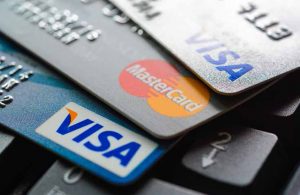Should You Use Your Credit Card to Pay Your Medical Insurance Premiums?

Tempted to pay for your medical expenses and health insurance premiums with a credit card?
There are pros and cons.
Even though health insurance companies and providers are not required to accept credit cards, many do. Is it a good idea though?
Here are the pros and cons:
Pros
- Using a credit card can be very convenient. You can worry later about the hit to your checking or savings account. Certain credit cards even let you earn cash back or other rewards — such as airline mileage or stays at a hotel. The more you spend on health costs, the more reward points you earn.
- As long as you pay off your credit card balance including health care premiums every month, you’ll have no problems and you can maintain a good credit score. Maintaining a good credit score is important because it will determine the amount of your down payment, interest rate and monthly obligation when you borrow to make expensive purchases, such as a house or car. Potential employers may also refer to your credit score to assess your character and evaluate how well you handle financial responsibilities.
Cons
- The most obvious drawback is that interest charges on unpaid balances can become unwieldy. Current interest rates for most credit cards range from 14.74% to 24.74%. Interest on one or more unpaid premiums of even a few hundred dollars can compound to the point of being extremely difficult to repay.
- You may also be charged an additional fee by the provider for using a credit card. They may add a percentage of your premium or charge a flat fee.
- As mentioned above, lenders check on whether you’re mishandling your account by carrying large balances. For this they look at your credit utilization ratio, which is calculated by adding up the balances on all your cards and dividing that number by the sum of all your credit limits. If this figure is more than 30 percent, it could affect your ability to get a loan.
- In addition, if you miss a payment and it becomes 30 days or more past due, you will get charged a late payment fee and may receive a negative mark on your credit report.
- And lastly, financial experts recommend not to put payments on auto pay. Although this is one way to make sure you don’t miss a deadline, the process of switching to a different insurer can get complicated. It’s also easy to lose track of how much you’re being charged. For those who do not have the immediate cash to pay medical expenses, a health care credit card or medical credit card can be helpful.
A health care credit card works like a regular credit card but is used specifically for medical expenses, such as dental care. Most health credit cards have a low annual percentage rate (APR). This is the rate you’ll pay if you carry a balance over the course of a year. For instance, the card might allow you six to 18 months to pay off the balance before the regular APR takes effect.
Please call us if you have more questions about using your credit card for medical expenses.